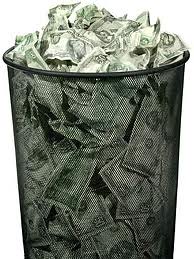
When you buy your own home you are not taking available dollars away from another investment. You are replacing one housing expense (rent) which has no potential for a return on investment with another (mortgage payment) that does give you an opportunity for a return. We realize that there has been research showing that over the last 30 years renting has been less expensive than owning. That research also says that if you invested the entire difference between the rent payment and mortgage payment you may have done better financially. There are two challenges with this conclusion:
Paying a mortgage creates what financial experts call ‘forced savings’. The Joint Center for Housing Studies at Harvard University released a study titled America’s Rental Housing: Meeting Challenges, Building on Opportunities. In the study, they actually quantified the difference in family wealth between renters and homeowners:
“[R]enters have only a fraction of the net wealth of owners. Near the peak of the housing bubble in 2007, the median net wealth of homeowners was $234,600—about 46 times the $5,100 median for renters. Even if homeowner wealth fell back to 1995 levels, it would still be 27.5 times the median for renters.”
There is no doubt that selling an investment such as gold is easier than selling your home. However, this liquidity comes at a price. The price is called capital gains. That is the tax you pay on any financial gain you receive from the investment. This tax doesn’t apply the same way when you sell your primary residence:
Theresa Palagonia, a CPA and the Accounting Manager for the firm G.S. Garritano & Associates, was good enough to explain the Home Sale Exclusion Rules:
“You may qualify to exclude from your income all or part of any gain from the sale of your main home.
Maximum Exclusion
You can exclude up to $250,000 of the gain on the sale of your main home if all of the following are true:
- You meet the ownership test.
- You meet the use test.
- During the 2 year period ending on the date of the sale, you did not exclude gain from the sale of another home.
If you and another person owned the home jointly but file separate returns, each of you can exclude up to $250,000 of gain from the sale of your interest in the home if each of you meets the three conditions listed above.
You may be able to exclude up to $500,000 of the gain on the sale of your main home if you are married and file a joint return and meet the requirements. (Special rules apply for joint returns.)
We will let you decide for yourself whether homeownership makes sense financially.
